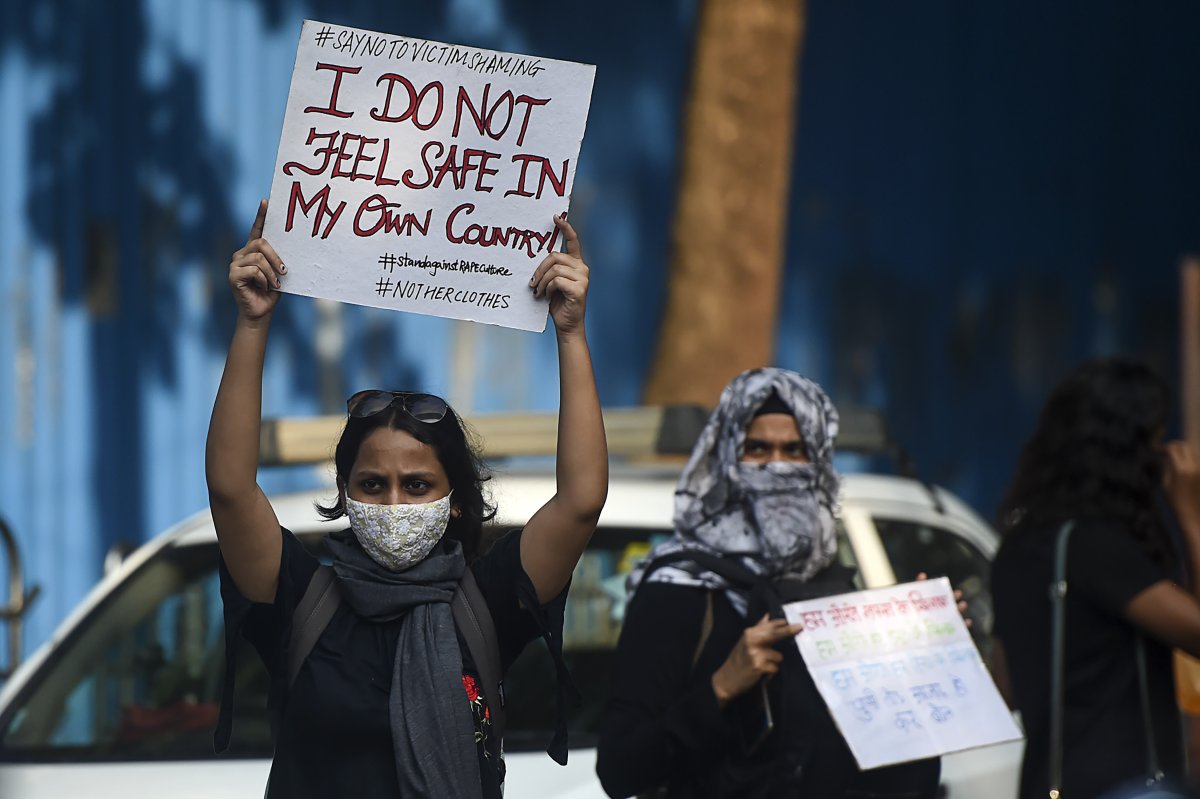An Indian city is set to deploy facial recognition in a bid to detect the expressions of women being harassed in public spaces, eliciting concern among digital rights advocates.
Indian media outlets reported authorities in the city of Lucknow plan to mount AI-equipped cameras that will alert nearby police stations when they spot a woman's "distress" due to harassment.
Lucknow police commissioner D K Thakur told The Times of India that authorities are looking to install the cameras at 200 "crime hotspots" in the city. The placements were determined by the "presence of girls and women in the area," as well as stalking and harassment complaints.
Raman Jit Singh Chima, Access Now's Senior International Counsel and Asia Pacific Policy Director, told Newsweek Lucknow's proposed cameras "directly infringe protected fundamental rights in India."
"Police authorities across India appear to be in a rush to deploy facial recognition technology without any transparency, public consultation, or legal clarity around these mass surveillance projects—hoping perhaps to operationalize them before judicial controls limit them," said Chima.
"There has been no data provided that women groups familiar with how harassment and violence towards women takes place in India have actually called for such tools," he added. "And there exists a high likelihood that they would be used to further surveil women."
The decision was criticized on Twitter, as the controversy prompted a discussion on the intersection between state surveillance and gender issues.
"Wondering if Lucknow Police will also equip public places with AI-enabled cameras that will click pictures of men on the basis of facial expressions and alert the near police station about their intentions," tweeted ThePrint journalist Aneesha Bedi.
"So, clicking pictures of women without their consent using facial recognition technology. What's next ? Making working women register themselves so that they can be tracked ? Oh, wait..." wrote another Twitter user.
Anja Kovacs, founder and director of the Internet Democracy Project, an Indian digital rights organization, wrote the decision is based on "so many problematic gendered assumptions, including the laughable one that women in distress necessarily look at the police as desirable, or even possible, 'saviors.'"
India is widely regarded to be one of the world's most dangerous countries for women. According to 2019 data by the country's National Crime Records Bureau, rape in India increased by 7.3 percent from the year before. Uttar Pradesh, the province of which Lucknow is the capital, has the highest share of crimes against women.
In a September 2020 case that rocked India, a 19-year-old woman was gang-raped by four men in Uttar Pradesh's Hathras district. She died of her injuries two weeks after the brutal assault.
Apart from the tremendous extension of control in public space this entails, it's based on so many problematic gendered assumptions, including the laughable one that women in distress necessarily look at the police as desirable, or even possible, 'saviours' #genderingsurveillance https://t.co/99sV6FamsR
— Anja Kovacs (@anjakovacs) January 21, 2021

Uncommon Knowledge
Newsweek is committed to challenging conventional wisdom and finding connections in the search for common ground.
Newsweek is committed to challenging conventional wisdom and finding connections in the search for common ground.
About the writer
To read how Newsweek uses AI as a newsroom tool, Click here.








